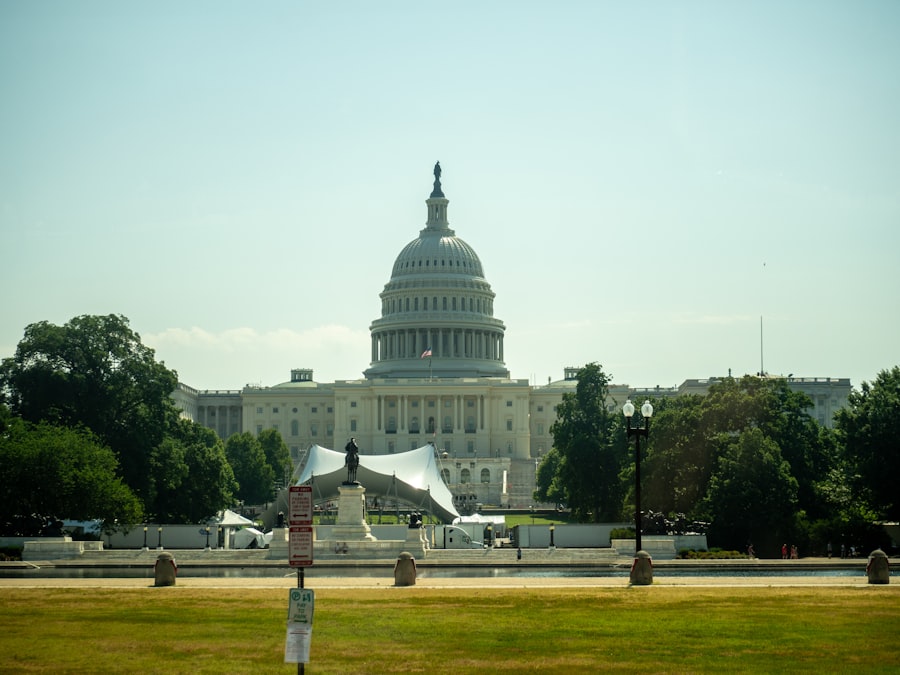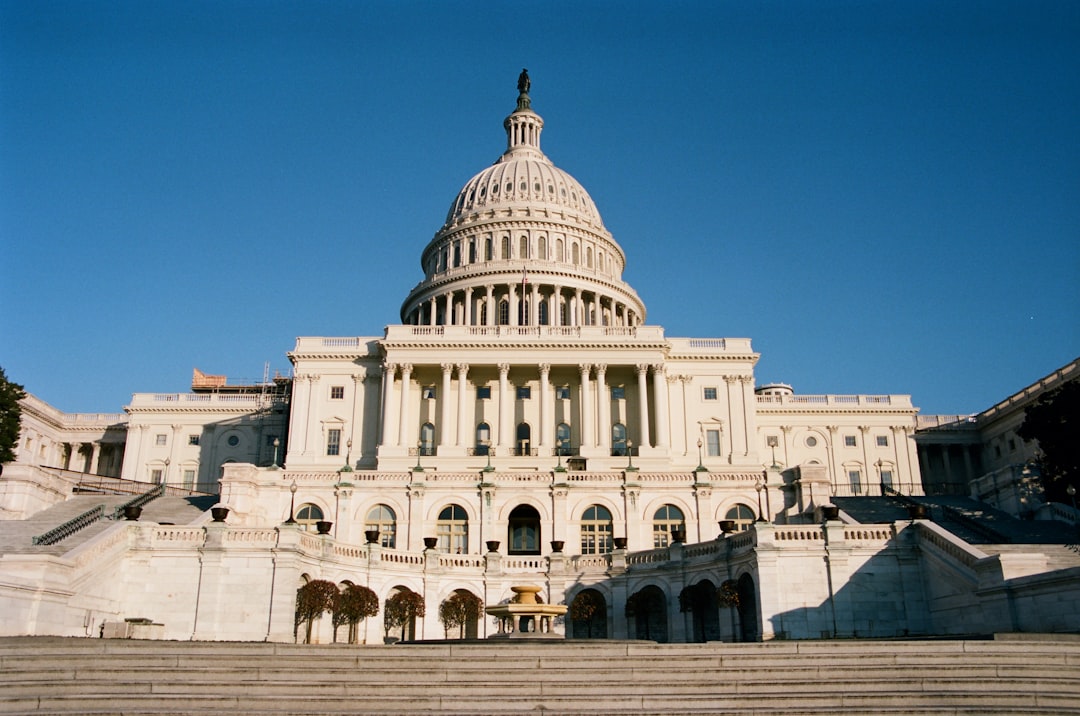Corporate lobbying has become an integral part of the political landscape, particularly in the realm of food regulation. This practice involves companies and industry groups exerting influence over lawmakers and regulatory agencies to shape policies that favor their interests. In the context of food regulation, corporate lobbying can significantly impact the safety, quality, and accessibility of food products.
As the global food system becomes increasingly complex, the role of corporate lobbying raises critical questions about the balance between economic interests and public health. The food industry is a powerful player in the lobbying arena, with large corporations often possessing the resources to sway legislative outcomes. This influence can lead to regulations that prioritize profit over consumer safety, resulting in a food environment that may not always serve the best interests of the public.
Understanding the dynamics of corporate lobbying in food regulation is essential for recognizing how these forces shape the food landscape and affect individual health outcomes.
Key Takeaways
- Corporate lobbying has a significant impact on food regulation and government policies.
- Big food companies play a major role in shaping food regulations through lobbying efforts.
- Corporate lobbying can have negative effects on public health by influencing food regulations.
- Case studies demonstrate successful corporate lobbying efforts in shaping food regulation.
- There is a need for transparency, accountability, and advocacy for fair and effective food regulation to counteract corporate lobbying.
The Influence of Corporate Lobbying on Government Policies
Corporate lobbying exerts a profound influence on government policies, particularly in sectors like agriculture and food production. Lobbyists representing major food corporations often engage in extensive campaigns to promote legislation that aligns with their business objectives. This can include advocating for subsidies, tax breaks, or deregulation that benefits large agribusinesses while potentially undermining smaller producers and local food systems.
The financial resources available to these corporations enable them to hire skilled lobbyists who can navigate the complexities of government bureaucracy and effectively communicate their interests to policymakers. Moreover, the impact of corporate lobbying extends beyond direct legislative changes. It can also shape the regulatory environment by influencing the agencies responsible for overseeing food safety and quality.
For instance, lobbyists may work to weaken enforcement mechanisms or delay the implementation of new regulations that could impose additional costs on businesses. This creates a scenario where corporate interests can overshadow public health considerations, leading to policies that may not adequately protect consumers from unsafe or unhealthy food products.
The Role of Big Food Companies in Shaping Food Regulations

Big food companies play a pivotal role in shaping food regulations through their lobbying efforts and financial contributions to political campaigns. These corporations often have significant stakes in the outcome of regulatory decisions, as they seek to maintain or enhance their market positions. By investing heavily in lobbying activities, they can ensure that their voices are heard in the halls of power, often at the expense of public health priorities.
The strategies employed by these companies can vary widely, from direct lobbying of lawmakers to funding research that supports their positions. For example, they may sponsor studies that downplay the health risks associated with certain ingredients or practices, thereby influencing public perception and regulatory approaches. Additionally, big food companies often form coalitions with other industry players to amplify their lobbying efforts, creating a united front that can be more effective in swaying policymakers.
The Effects of Corporate Lobbying on Public Health
| Study | Findings |
|---|---|
| Research 1 | Increased corporate lobbying leads to weaker public health regulations. |
| Research 2 | Corporate lobbying is associated with higher rates of unhealthy product consumption. |
| Research 3 | Public health policies are often influenced by corporate lobbying efforts. |
The effects of corporate lobbying on public health are profound and multifaceted. When regulations are shaped primarily by corporate interests, there is a risk that consumer safety and well-being may be compromised. For instance, lobbying efforts may lead to the approval of additives or processing methods that are not thoroughly vetted for their long-term health impacts.
This can result in a food supply that is not only less safe but also contributes to rising rates of diet-related diseases such as obesity, diabetes, and heart disease. Furthermore, corporate lobbying can create barriers to transparency in food labeling and marketing practices. Companies may resist regulations that require clear labeling of ingredients or nutritional information, arguing that such measures could harm their competitiveness.
This lack of transparency can leave consumers in the dark about what they are eating, making it difficult for them to make informed choices about their diets. Ultimately, the consequences of corporate lobbying extend beyond individual health; they can also strain public health systems as communities grapple with the fallout from poor dietary choices influenced by misleading marketing and inadequate regulation.
Case Studies of Successful Corporate Lobbying Efforts in Food Regulation
Several case studies illustrate the successful lobbying efforts of big food companies in shaping food regulation. One notable example is the fight over sugar-sweetened beverage taxes in various jurisdictions. In cities like Philadelphia and Berkeley, local governments sought to impose taxes on sugary drinks as a public health measure aimed at reducing consumption and combating obesity.
However, beverage industry lobbyists mounted aggressive campaigns against these initiatives, arguing that such taxes would disproportionately affect low-income consumers and harm local businesses. In many instances, these lobbying efforts proved effective, leading to the defeat or weakening of proposed legislation. The beverage industry’s ability to mobilize resources and public relations campaigns highlights how corporate interests can successfully thwart regulatory measures designed to protect public health.
Such case studies underscore the challenges faced by advocates seeking to implement meaningful reforms in food regulation when confronted with well-funded opposition.
The Ethical and Moral Implications of Corporate Lobbying in Food Regulation

The ethical and moral implications of corporate lobbying in food regulation raise significant concerns about the integrity of democratic processes and the prioritization of profit over public welfare. When corporations wield disproportionate influence over policy decisions, it raises questions about accountability and representation. The interests of large food companies often diverge from those of consumers, leading to a situation where regulatory frameworks may favor corporate profits at the expense of community health.
Moreover, this dynamic can perpetuate systemic inequalities within the food system. Vulnerable populations may be disproportionately affected by lax regulations or misleading marketing practices, exacerbating existing health disparities. The ethical considerations surrounding corporate lobbying compel society to reflect on the values that underpin food regulation and whether current practices align with a commitment to promoting public health and well-being.
The Power Imbalance Between Corporate Interests and Public Health Concerns
The power imbalance between corporate interests and public health concerns is a critical issue in contemporary food regulation.
In contrast, public health advocates often operate with limited budgets and rely on grassroots mobilization to voice their concerns.
This disparity creates an uneven playing field where corporate interests can dominate discussions about food safety and nutrition. Additionally, this power imbalance is exacerbated by the revolving door between government agencies and the private sector. Individuals who move between regulatory roles and positions within big food companies may carry biases that favor industry perspectives over public health priorities.
This phenomenon raises questions about the effectiveness of regulatory oversight and whether agencies are adequately equipped to protect consumers from potential harms associated with corporate practices.
The Need for Transparency and Accountability in Food Regulation
The need for transparency and accountability in food regulation has never been more pressing. As corporate lobbying continues to shape policy outcomes, it is essential for consumers and advocacy groups to demand greater openness regarding how decisions are made. Transparency in lobbying activities can help illuminate potential conflicts of interest and ensure that regulatory processes are not unduly influenced by corporate agendas.
Accountability mechanisms must also be strengthened to hold both corporations and policymakers responsible for their actions. This could involve implementing stricter regulations on campaign financing or requiring disclosures related to lobbying expenditures. By fostering an environment where transparency is prioritized, stakeholders can work towards creating a more equitable regulatory framework that prioritizes public health over corporate profits.
Strategies for Advocating for Fair and Effective Food Regulation
Advocating for fair and effective food regulation requires a multifaceted approach that engages various stakeholders, including consumers, public health advocates, and policymakers. One effective strategy is grassroots mobilization, which empowers individuals to voice their concerns about food safety and nutrition directly to their representatives. By organizing campaigns that highlight specific issues related to corporate lobbying, advocates can raise awareness and generate public support for reform.
Collaboration among diverse organizations can also amplify advocacy efforts. By forming coalitions that unite public health groups, environmental organizations, and consumer advocacy organizations, stakeholders can present a united front against corporate interests. This collective action can enhance visibility and influence policy discussions at local, state, and national levels.
The Role of Consumers in Counteracting Corporate Lobbying in Food Regulation
Consumers play a vital role in counteracting corporate lobbying in food regulation by exercising their purchasing power and advocating for transparency in the marketplace. By choosing to support brands that prioritize ethical practices and transparency, consumers can send a clear message to corporations about their preferences for healthier and safer food options. This shift in consumer behavior can encourage companies to adopt more responsible practices in response to market demand.
Additionally, consumers can engage in advocacy efforts by participating in campaigns aimed at reforming food regulations or supporting initiatives that promote healthier eating habits. By staying informed about issues related to food safety and nutrition, individuals can become effective advocates for change within their communities. Ultimately, consumer engagement is essential for creating a more equitable food system that prioritizes public health over corporate profits.
Moving Towards a More Equitable and Healthier Food System
In conclusion, addressing the challenges posed by corporate lobbying in food regulation is crucial for fostering a more equitable and healthier food system. The influence of big food companies on government policies raises significant concerns about public health priorities being overshadowed by corporate interests. To create meaningful change, it is essential for stakeholders—ranging from consumers to advocacy groups—to demand greater transparency and accountability within regulatory processes.
By advocating for fairer policies and supporting initiatives that prioritize public health over profit margins, society can work towards a food system that serves everyone equitably. As consumers become more engaged in these issues, they have the power to drive change from the ground up, ultimately leading to a healthier future for all individuals within the community. Moving forward requires collective action aimed at dismantling the barriers created by corporate lobbying while championing policies that promote safety, nutrition, and well-being for all citizens.
Corporate lobbying has long been a contentious issue, particularly in how it influences food regulation. The power wielded by large corporations often results in weakened regulations, which can compromise public health and safety. For instance, companies may lobby for less stringent labeling requirements or push back against restrictions on harmful additives. This dynamic is explored in depth in a related article on the influence of corporate lobbying on food regulation. To gain further insights into how these practices impact the food industry and consumer safety, you can read more about it here.
WATCH NOW! How Grocery Prices Are a Hidden Corporate Tax 🤑🤑🤑🤑
FAQs
What is corporate lobbying?
Corporate lobbying refers to the practice of businesses and industry groups attempting to influence government policies and regulations in their favor. This can involve direct communication with government officials, financial contributions to political campaigns, and other forms of advocacy.
How does corporate lobbying affect food regulation?
Corporate lobbying can weaken food regulation by influencing lawmakers to create or amend regulations that are favorable to the interests of the food industry. This can result in less stringent regulations on food safety, labeling, and marketing, which may prioritize corporate profits over public health.
What are some examples of how corporate lobbying has weakened food regulation?
Examples of how corporate lobbying has weakened food regulation include efforts to block or delay regulations on labeling of genetically modified organisms (GMOs), limits on sugar and salt content in processed foods, and restrictions on marketing unhealthy foods to children.
What are the potential consequences of weakened food regulation due to corporate lobbying?
The potential consequences of weakened food regulation due to corporate lobbying include increased risk of foodborne illnesses, misleading or inadequate food labeling, and higher rates of diet-related diseases such as obesity and diabetes. This can have negative impacts on public health and healthcare costs.
What can be done to address the influence of corporate lobbying on food regulation?
Addressing the influence of corporate lobbying on food regulation may involve implementing transparency measures to track lobbying activities, strengthening conflict of interest rules for government officials, and promoting public awareness and advocacy for evidence-based food policies. Additionally, supporting independent research and expertise in food regulation can help counterbalance the influence of corporate interests.
